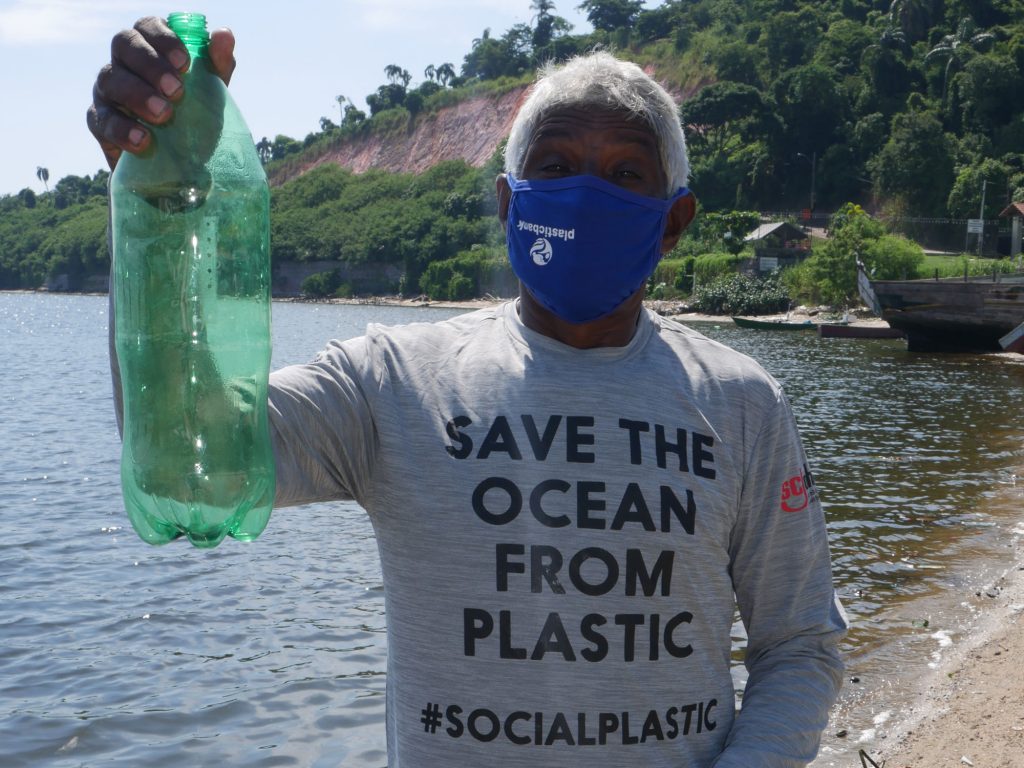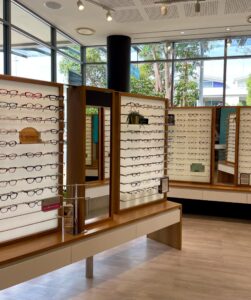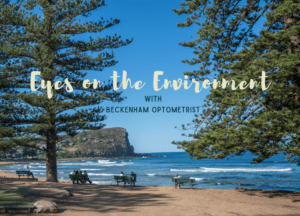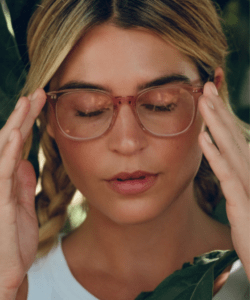Sustainability in Small Business

- OECD
Small businesses have a wonderful platform to be thought leaders and influencers in communities, and I believe have a social responsibility to make the environment a key factor in decision making. Some of the ways small businesses can begin to look at sustainability is by engaging in eco-friendly practices and holding the businesses they partner with accountable for their environmental impacts.
Sustainable practices don’t have to negatively impact product quality or patient care – in fact they do the opposite. Fast fashion and disposable frequent replacement of frames and sunglasses is a by-product of the past decade of two-for-one and cheaper disposable manufacturing. At Beckenham Optometrist we are asking the question – what is better for the world we live in? We strive to provide our community with clinical excellence and the most up-to-date information and technology in the optometry industry, which includes the best frames and lenses for both our patients and the environment.
In store, we recycle, reuse and refill everything we can from our packaging, cleaning sprays, and old spectacle cases. We recycle patients’ old specs by donating them to Lions Club who put them to good use in developing countries. We facilitate the recycling of disposable contact lenses and blister packs, which are recycled with Opticycle, who have so far recycled over 12,497kg of optical materials. This is particularly impressive considering incorrect contact lens disposal (i.e. flushing contact lenses down the sink or toilet, perpetrated by ~20% of wearers) contributes to distressing quantities of microplastics in our waterways.
We are actively partnering with Aussie frame brands who hold sustainable credentials. Good Citizens, a local Northern Beaches company, produces spectacles and sunglasses that are made from 100% recycled plastic. In fact, one plastic water bottle makes one pair of glasses. They also use approximately 70-75% less CO2 in their manufacturing process than other framewear brands who use brand new plastic in their production. Otis, heralding from WA, takes pride in providing “style with substance”, and is B CORP certified. Their sunglass lenses, made from mineral glass sourced from natural elements, are non-toxic, and recyclable. Otis frames are made from Eco-Acetate which is also recyclable, biodegradable, and eco-friendly.
Sustainability issues may seem confronting because they are numerous and complex, however the journey of transforming our business has evolved slowly over-time through incremental changes. The process is a rewarding one that provides greater opportunities for collaboration and new avenues of growth with the overarching aim of minimizing our impact on the world we live in.
Rowena Beckenham, Optometrist – B.Optom (UNSW) Hons, Grad Cert Oc Therapy (UNSW), GAICD







